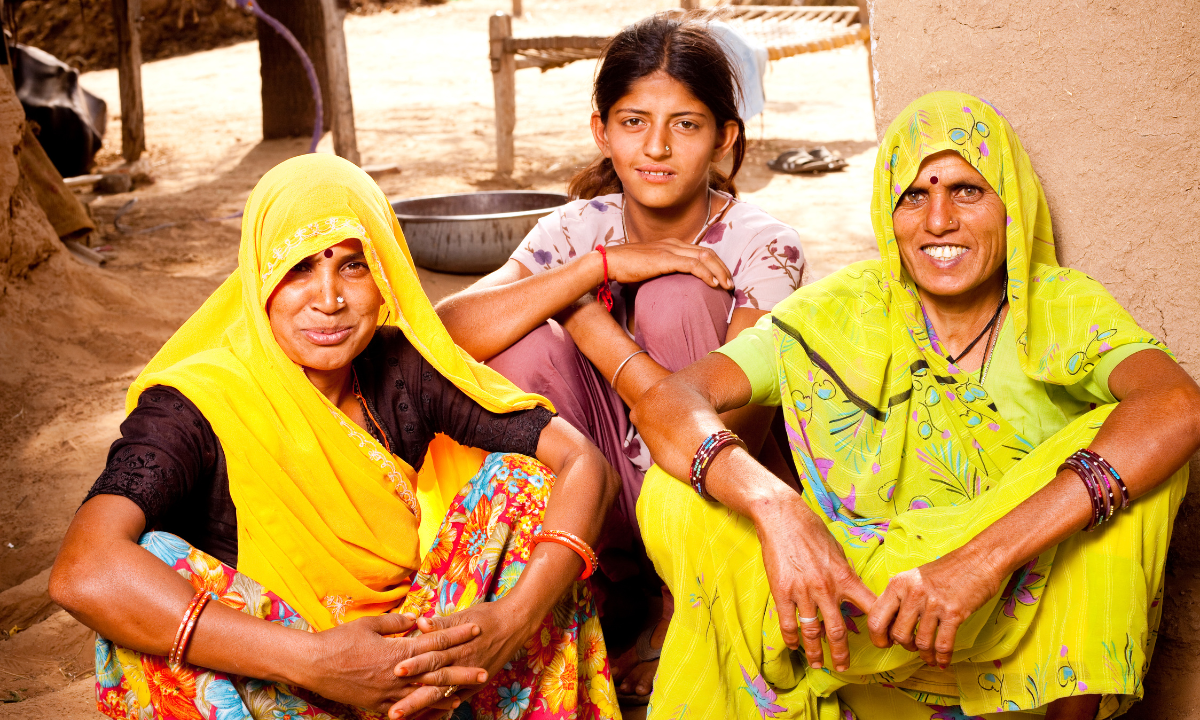Explained: Why You Should Care About International Day Of Zero Tolerance For Female Genital Mutilation
You are now one step ahead in becoming more aware!

The International Day of Zero Tolerance for Female Genital Mutilation is observed annually on February 6, as part of the United Nations Sustainable Development Goals (SDGs). This day plays a crucial role in raising awareness and driving action against the practice of female genital mutilation, a human rights violation that affects more than 200 million girls alive today.
Today is the International Day of Zero Tolerance for Female Genital Mutilation (FGM).
FGM is an extreme form of discrimination against women, violates human rights, and causes serious health harms.
It must be prevented. #EndFGM!➡️ https://t.co/3patABvHFC pic.twitter.com/uKjgkkconL
— World Health Organization (WHO) (@WHO) February 5, 2024
What Is Female Genital Mutilation?
Female Genital Mutilation (FGM) refers to the altering, cutting, or removal of someone or all of the external female genitalia for non-medical reasons. It is considered an act of violation of the human rights of women and girls internationally. The practice is commonly carried out on young girls between infancy and the age of 15. Although prevalent in almost 30 countries, Somalia accounts for the highest number of cases of FGM, which is about 99.2%, followed by Mali at 72.7%.
Also Read:India Refuses To Acknowledge Female Genital Mutilation, Let Alone Make Laws To Curb It
View this post on Instagram
The practice is not as prevalent in India but continues to exist primarily in Dawoodi, Bohra. There is no law in India condemning the practice. However, the Ministry of Women and Child Development does view it as a crime.
It’s International Day of Zero Tolerance for Female Genital Mutilation!
🚺 Over 200 million girls and women have been affected by #FGM. It’s a violation of their human rights and can cause lifelong physical and mental health issues.
We MUST #EndFGM♀️ pic.twitter.com/lLRHXEc9Df
— WHO African Region (@WHOAFRO) February 6, 2024
This is yet another attempt to curb women’s freedom. FGM does not have any proven health benefits; rather, it is a cause of many health and mental well-being issues for women. The only reason behind the whole process is to control women’s sexual freedom.
Health workers need to know how to treat the health conditions that may affect women 👩 & girls 👧 living with female genital mutilation.
They can also play a crucial role as advocates to #EndFGM
➡️ https://t.co/eRqy0d217s pic.twitter.com/8niCKXQmOs
— World Health Organization (WHO) (@WHO) February 6, 2024
Risks Associated With FGM
FGM poses several health risks, including severe pain, excessive bleeding, genital tissue swelling, fever, infections, and an increased risk of newborn deaths. Long-term consequences can include urinary problems, menstrual problems, scarred tissue and keloids, sexual problems, and childbirth complications. Psychologically, it can lead to depression, anxiety, post-traumatic stress disorder (PTSD), and low self-esteem.
“I’m a survivor of female genital mutilation.”
Survivor, nurse, and advocate to #EndFGM.
This is Catherine Meng’anyi’s story https://t.co/TQy3P8wcTO#HerVoiceMatters pic.twitter.com/ygSrrf7Exv— World Health Organization (WHO) (@WHO) February 6, 2024
Why Is The Day Important?
February 6 was first designated as the International Day of Zero Tolerance for FGM in 2012 as an initiative to eradicate the practice and empower women and girls. This approach by the United Nations aims to amplify the message that FGM is unacceptable due to its detrimental effects on the physical and psychological health of females.
It’s 2024, and yet nearly 4.4 million girls are at risk of female genital mutilation globally.
❌FGM is a form of violence against women.
On International Day to #EndFGM, let us amplify the voices of survivors and put an end to this harmful practice: https://t.co/mFvN0atz48 pic.twitter.com/rUZ92DD6s0
— UN Women (@UN_Women) February 6, 2024
In 2024, the theme for The International Day of Zero Tolerance for FGM is ‘Her Voice, Her Future.’ The organisation calls out for people to invest in the survivors-led movement so as to accelerate the process of eradicating the practice of female genital mutilation.
Also Read: Costa Rica Urges India To Acknowledge The Existence Of Female Genital Mutilation And Criminalise It. Finally, We Are Talking About It!
Prevention And Global Efforts
Any social cause requires unity and a multifaceted approach. Globally, everyone has to take responsibility for the human rights of girls and women. Most importantly, education plays a pivotal role in changing perceptions and norms that perpetuate FGM. International and local organisations work tirelessly to educate communities about the health risks and human rights violations associated with FGM. According to a survey by the United Nations, 30% more girls and women who have completed elementary school than those who have not are likely to be against female genital mutilation. For women and girls with at least a secondary education, this increases to 70%.
We must all join the call to #EndFGM — for refugee girls, and for everyone.
6 February is the International Day of Zero Tolerance for Female Genital Mutilation.
Are you with us? pic.twitter.com/mjWBgCUZ7U
— UNHCR, the UN Refugee Agency (@Refugees) February 5, 2024
The United Nations launched a joint programme on FGM in 2008, aiming to eradicate the practice as soon as possible. The programme supports legalisation and policies that condemn FGM and promotes community-level education to change societal norms. Similarly, Tostan is a non-governmental organisation that has been particularly successful at grassroots efforts to end FGM in West Africa. Tostan’s community empowerment programme facilitates discussions and education on human rights and health, which have led to numerous communities publicly declaring their abandonment of FGM.
Female genital mutilation is a crime and a violation of human rights.
On the International Day of Zero Tolerance for Female Genital Mutilation, and every day, let’s spread awareness and tackle all forms of violence against women and girls. pic.twitter.com/yYxMV43LrD
— European Parliament (@Europarl_EN) February 6, 2024
Overall, many countries have passed laws that criminalise FGM, and international bodies support implementing and enforcing these laws.
How Can You Help?
Initially, any change seems daunting, but it is actually way simpler than you think. It is as easy as reading this article, so you are already one step ahead.
Her Voice, Her Future.Investing in Survivor-Led Movements to end Female Genital Mutilation. As we honor the International Day of Zero Tolerance for Female Genital Mutilation, let us give girls and women a better future,by saying NO to FGM!#EndFGM#HerVoiceMatters#ZeroTolerance pic.twitter.com/gb0sAGPLXi
— Anti-FGM Board Kenya (@AFGMBoard) February 5, 2024
Education: The basis of most problems is a lack of education. And the solution lies in awareness. Educate yourself about FGM and share this knowledge with your community (just like you share that gossip about that new neighbour)
Support NGOs: Many non-governmental organisations are on the front lines, working to end FGM. Consider donating to or volunteering for these organisations.
Daga’s story is a perfect example of how our Community Empowerment Program provides a comprehensive non-formal education solution that empowers adults and youth with a range of knowledge and skills that help them to address important issues #InternationalEducationDay2024 https://t.co/nYUHz13PBe
— Tostan (@Tostan) January 24, 2024
Advocate Policy Change: Advocate for stronger policies and enforcement mechanisms against FGM. Be it just sharing this article on your Instagram story, signing a petition, or commenting on a post that supports the campaign.
Empower Girls and Women: Support initiatives that empower girls and women, providing them with education, health care, and economic opportunities.
Today is International Day of Zero Tolerance for Female Genital Mutilation (FGM).@UNICEFKenya is committed to ending this violation of children’s rights, including creating safe spaces for open dialogue within communities to support the elimination of #FGM. #HerVoiceMatters pic.twitter.com/5EPKqNSUUr
— UNICEF Kenya (@UNICEFKenya) February 6, 2024
The International Day of Zero Tolerance for Female Genital Mutilation serves as a reminder of the collective action required to end this practice. By educating ourselves, advocating for effective policies, and supporting the rights of girls and women, we can move closer to a world free of FGM. Let’s use this day to reaffirm our commitment to protecting and upholding the dignity, health, and well-being of all females.
First Published: February 06, 2024 7:25 PM6 Ways Women’s Sexuality Is Systematically Curbed In Our Society













